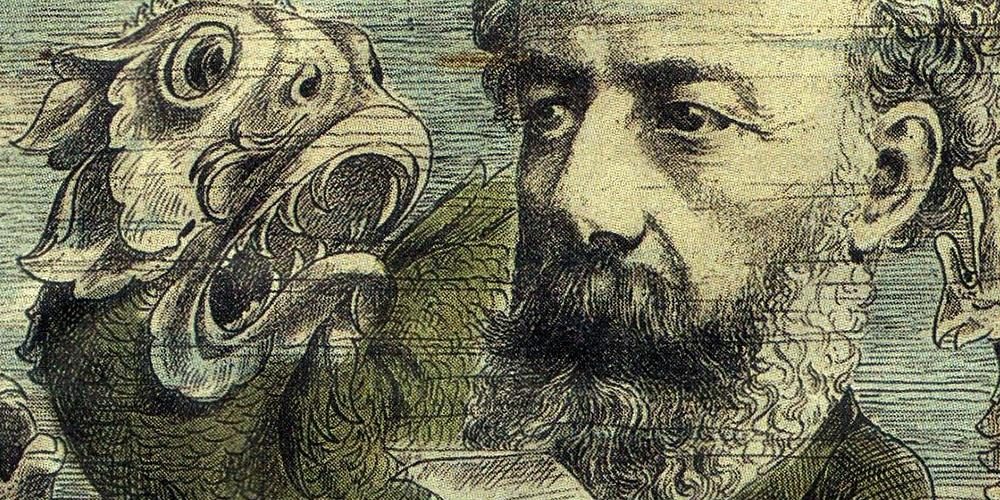Even if you have never read anything by Jules Verne, you have almost certainly heard of his literary contributions. Mr. Verne is the author behind such classics as 20,000 Leagues Under the Sea, Journey to the Center of the Earth, and Around the World in Eighty Days. There have been multiple adaptations of his works across a multitude of mediums over the last century and a half. There is, however, one book you probably haven’t heard of because his publisher thought it too absurd to publish in the 1860’s, so it wasn’t published until 1994. The book is called Paris in the Twentieth Century, and it’s special because it predicted the future.

Jules Verne is a prolific 19th-century French writer with more than 60 novels to his name, and is widely considered the “Father of Science-Fiction.” His most famous work is his Voyages Extroaordinaires, which collects 54 of his novels including the big three listed above. His works are also a huge influence on the world of Steampunk, as his novels are filled with fantastical elements grounded in Victorian era science.
Paris in the Twentieth Century was one of his earliest works, which he turned into his publisher in 1863 after his successful first novel Five Weeks in a Balloon. The publisher refused to publish the book because believed it to be too pessimistic, and too unbelievable. It wasn’t until 1989 that the manuscript was discovered by Verne’s great-grandson, and then it was another 5 years until it was published. What’s ironic about the publisher turning Paris in the Twentieth Century down for it being unbelievable is that it accurately predicted several facets of the modern world 100 years after it was written.
So, what did Mr. Verne predict? First of all, in his version of the 1960’s, the cities would be illuminated by electric lights, which is fitting since Paris is called the City of Lights. He predicted skyscrapers, the expansion of the suburbs, subways, high-speed railway systems, telegraphs that would transmit pictures i.e. fax machines (which are already horribly outdated), electric machines that are a part of an extensive network and communicate with each other (the internet). Additionally, Verne spoke about the rise of electronic music (Skrillex), synthesizers (the 80’s), and a recorded music industry. He also predicted that cars, which he referred to as gas-cabs, would be a primary means of transportation, and even predicted the infrastructure required to sustain automobile’s, like gas stations and paved asphalt roads. In this novel, the weapons of war have become so powerful that most countries won’t even fight anymore lest everybody gets destroyed, which sounds an awful lot like the Cold War and the arms race between the United States and the U.S.S.R. Oh, and he sort of predicted porn? In his book, he predicted that the entertainment industry would be dominated by stage plays featuring nudity and sexual acts, so there’s that.
That is a staggering amount of accuracy for a book written a decade before Dr. Arliss Loveless attacked President Grant with his giant mechanical spider. While it is true that Verne didn’t see himself as a scientific prophet – or even a science-fiction author for that matter – it is fascinating how many of his visions for a dystopian, 1960’s Paris actually became a reality.

Perhaps the most depressing part Verne’s future is that society has become obsessed with technology and business to the point where things like art, literature or human creativity, in general, are thrown by the wayside. While our society is indeed engrossed with technology (see: pphubbing), human creativity still has its place, and with the advent of the internet, immediately available for consumption.
Ultimately, Verne’s version of the future is a bit bleaker than reality, but many of his predictions hit the metaphorical nail on the head. Cars were hitting their stride in the 1960’s, and let’s be honest, if you combine the emergence of interconnected machines and lewd stage-plays, you have 85% percent of the world’s internet content. What this all amounts to is that Jules Verne not only kick-started the science-fiction genre, he is also a a master of speculative fiction.
If you are interested in checking out Paris in the Twentieth Century for yourself, head on over to Amazon, or better yet, ask your local bookstore to order you a copy. Fair warning – the story isn’t exactly uplifting.
For more information about Steampunk, check out our Primer!

